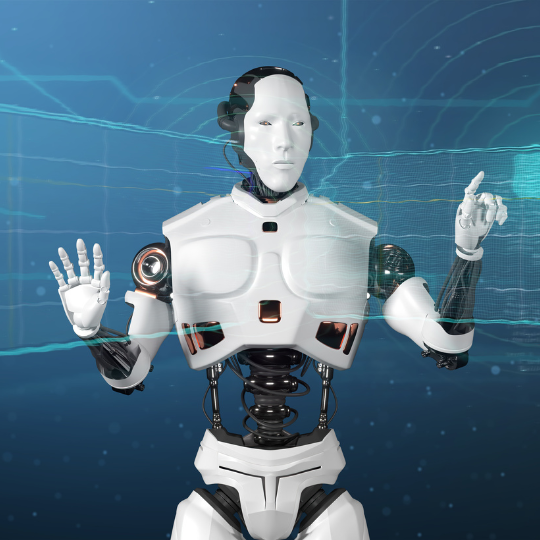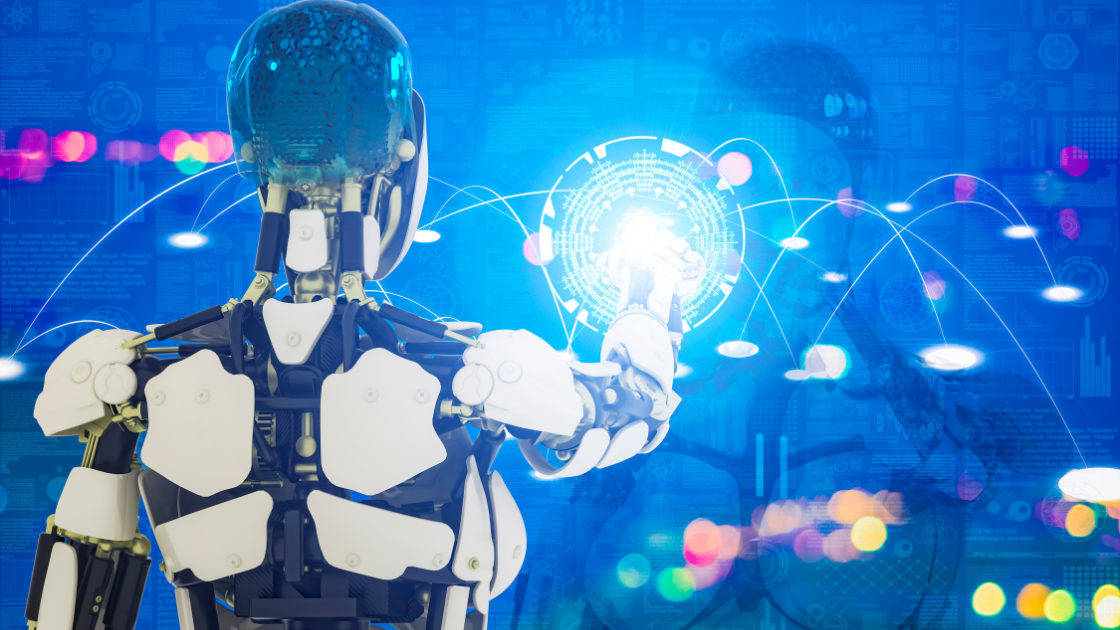The growth of artificial intelligence is impacting content creation in a big way. In relation to that, AI-generated content offers great opportunities for business people, creators, and consumers. From mechanizing repetitive tasks to the generation of quality content en-masse, AI is reshaping how we produce and consume information.
Yet, with this, great opportunities come associated challenges that must be met to ensure responsible and ethical AI use in content creation. In this vein, the following article seeks to explore the opportunities and challenges of AI in content creation and its implications for the future of digital media.

Opportunities In AI-Generated Content
1. Increasing Efficiency And Productivity
Probably the most important of these advantages of AI content creation is how it truly makes the process of content creation easier. It gives artificial intelligence tools the ability to make repetition-intensive activities—like data entry, transcription, content curation, and generally time-consuming activities—automated, which frees up human creators’ time to take care of the more strategic and creative dimensions of their work.
Such increased efficiency might lead to greater productivity, higher output, and speed in content production—something especially useful to businesses aimed at maintaining a consistent output of content.
2. Personalization At Scale
AI can process large reams of data to accomplish content personalization at the individual level. This can provide highly personalized content experiences in which users get recommendations, articles, and media relevant to their interests and conduct.
For businesses, this means that customers can be engaged at a deeper level, improving user experience and brand loyalty. Personalization at scale by way of AI is changing how marketing, customer service, and content delivery are done.
3. Affordable Content Creation
Quality content production could be intensive in terms of time spent, efforts made, and money used. AI-generated content is quite cost-effective for producing content, especially where tasks can easily be automated, such as generating product descriptions or even news summaries—social media posts, if you will. Accordingly, reducing manual labor in this respect can provide more resources and attention to high-impact activities.
4. Multilingual Content Creation
AI-powered translation tools and NLP technologies make the creation of multi-lingual content easier with less hassle. It brings opportunities for a global reach, allowing businesses to increase their audience and engage more customers out of different regions. Besides, generating multilingual content helps bridge the communication gap and allows for inclusiveness in digital media.
5. Improved Creativity And Innovation
Not limited to churning out routine and formulaic content, AI can help stimulate creativity and innovation. It is capable of suggesting new ideas, formats, and approaches by looking at trends, patterns, and user data. The role of AI could be a collaborative partner in the creative process, provoking inspiration and augmenting human creativity rather than replacing it.
Challenges of AI-Generated Content
1. Quality And Accuracy
One of the major challenges for AI-generated content is quality and accuracy. Speed alone in producing content with AI tools does not really include coming up with accurate or reliable information. AI systems are trained according to the data they are given, and if any incomplete, biased, or even outdated information is present in that data, it will show in the results. Careful supervision in ensuring that AI-created content meets high standards of quality and accuracy underlines the continuous refinement of AI algorithms.
2. Ethical Concerns And Bias
AI content creation goes hand in hand with ethical concerns about bias and fairness. AI may unconsciously pick up on or amplify existing biases within the training dataset. This can lead to the generation of biased, prejudiced, or even misleading content.
Suppose such ethical concerns are to be overcome. In that case, there needs to be transparency in how AIs are developed, coupled with diverse and representative training data and continuing monitoring in identifying and mitigating bias.
3. Intellectual Property And Copyright Issues
AI Content Creation: Incredibly complex issues associated with intellectual property and copyright come into play when AI is used for content creation: Who can claim the right to AI-created content? Can AI be credited for an authored work? That debate remains very alive, not just within legal circles but also within creative communities.
With no guide to point in very clear directions, uncertainty lingers over creators and businesses alike. One of the most important challenges of AI content generation is to ensure that intellectual property rights are respected and plagiarism is avoided.
4. Human Touch And Authenticity
While AI can produce content at scale, it does not bear the authenticity and emotional subtleties that human creators bring to their work. The audience may seek out the particular point of view, wisdom, and imagination provided only by humans.
Over-reliance on AI-generated content takes away this touch of humanness, making the content too impersonal or prescriptive. Automation with AI should balance with human creativity to maintain authenticity in developing content.
5. Job Displacement And Economic Impact
One of the most raging topics of discussion is the development of AI content that is prone to replace human jobs related to journalism, marketing, and even creative writing. With the enhanced capability of AI tools, some of the human roles may be automated.
On the other side, AI opens up new role areas around managing, refining, and overlooking AI-generated content. How AI will make an economic impact in content creation will be a result of how industries adapt themselves and evolve with these changes.
Conclusion
While AI-generated content presents an exhilarating potential for efficiency, personalization, and innovation, it also comes with challenges that must be taken care of diligently. The combination of ethics, transparency, and human supervision will help businesses and content creators ride the waves of AI in content creation for quality, genuine, and high-impact content. With the constantly improving nature of AI technology, its role is only bound to increase in content creation; therefore, all stakeholders need to be thoughtful and responsible navigation of these new waters.







